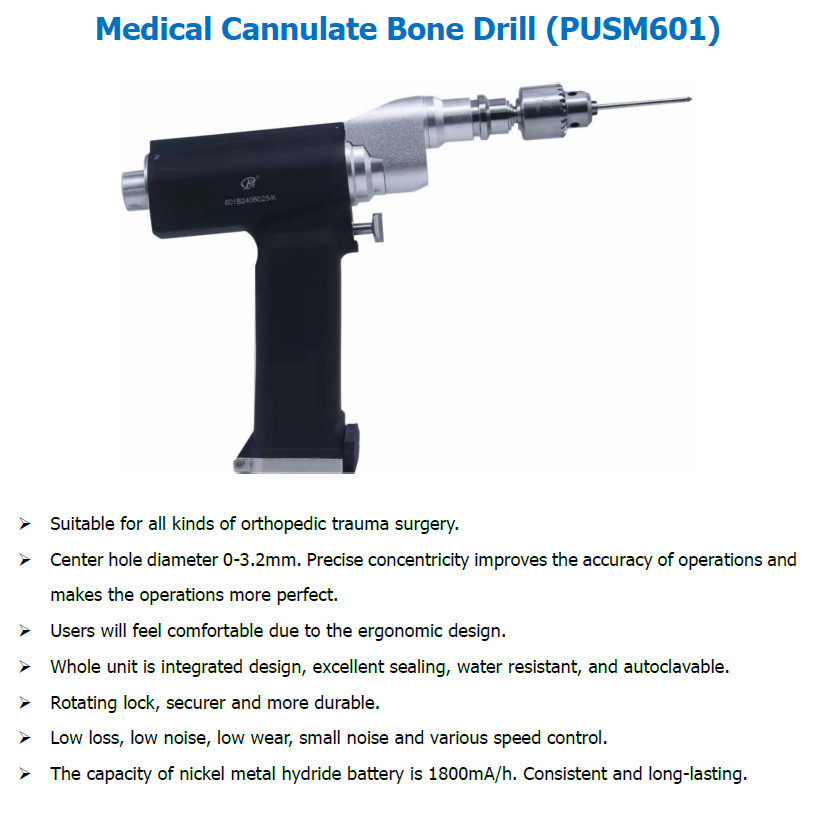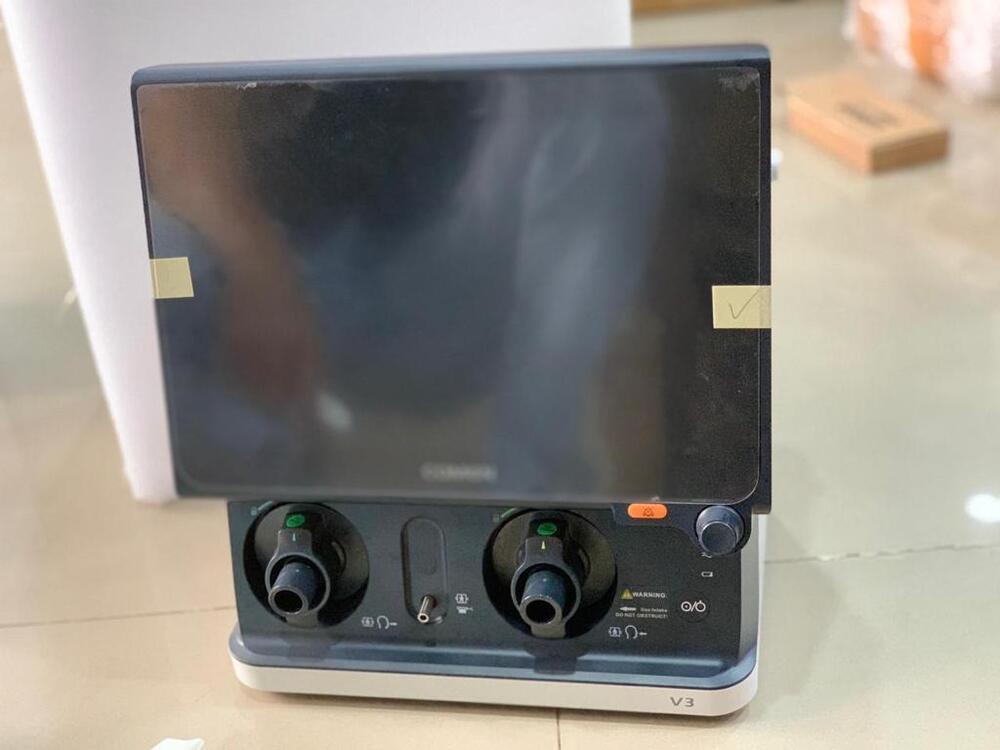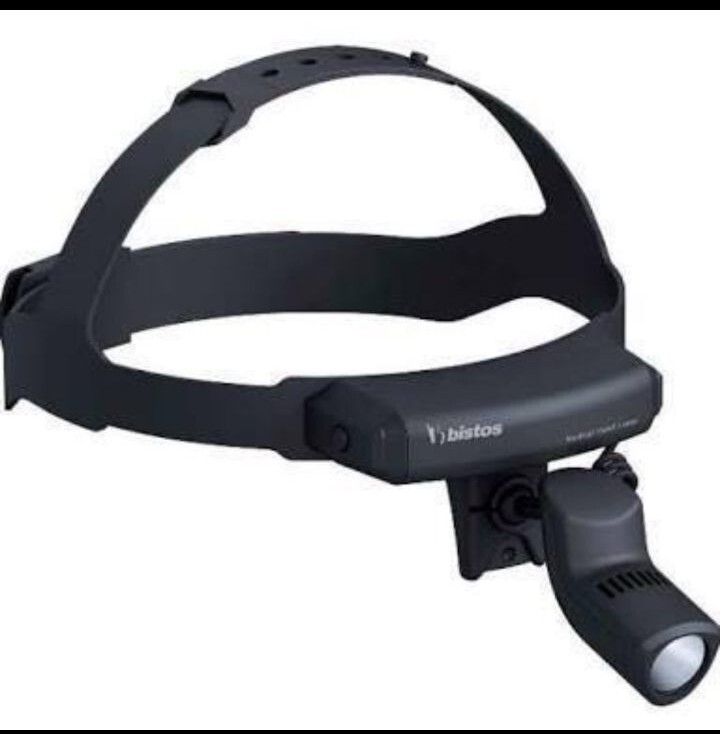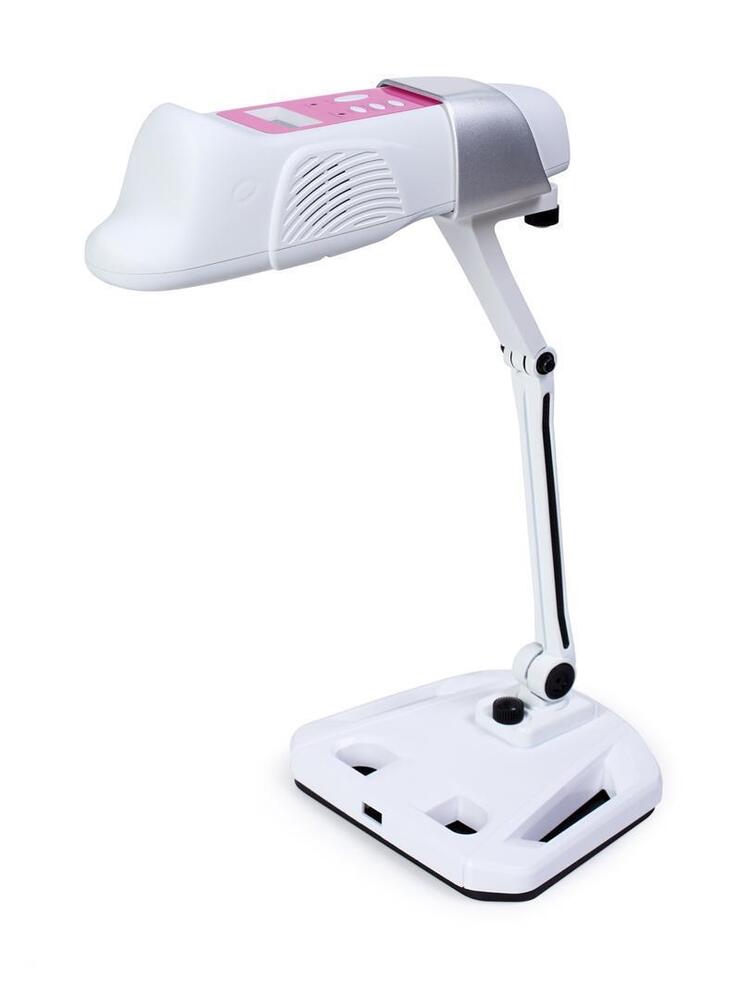KORRIDA ECG
Price 55000 INR/ Piece
KORRIDA ECG Specification
- Weight
- 3 Kilograms (kg)
- Use
- HOSPITAL USE
- Suitable For
- HOSPITAL
- Material
- PLASTIC
- Dimension (L*W*H)
- 16*16*16 Inch (in)
- Color Code
- WHITE
- Product Type
- MEDICAL
KORRIDA ECG Trade Information
- Minimum Order Quantity
- 1 Piece
- Payment Terms
- Cash in Advance (CID)
- Supply Ability
- 100 Pieces Per Day
- Delivery Time
- 7 Days
- Main Export Market(s)
- Asia, Australia, Central America, North America, South America, Eastern Europe, Western Europe, Middle East, Africa
- Main Domestic Market
- All India, South India, Central India, West India, North India, East India, Gujarat, Karnataka, Kerala, Lakshadweep, Mizoram, Meghalaya, Manipur, Andhra Pradesh, Bihar, Chandigarh, Daman and Diu, Goa, Jharkhand, Odisha, Punjab, Assam, Delhi, Dadra and Nagar Haveli, Andaman and Nicobar Islands, Arunachal Pradesh, Chhattisgarh, Haryana, Himachal Pradesh, Jammu and Kashmir, Madhya Pradesh, Maharashtra, Nagaland, Rajasthan, Sikkim, Tamil Nadu, Telangana, Tripura, Pondicherry, Uttar Pradesh, Uttarakhand, West Bengal
About KORRIDA ECG
An ECG Electrocardiogram Machine is a diagnostic medical device used to measure and record the electrical activity of the heart It provides detailed insights into the hearts rhythm and function helping detect arrhythmias ischemia heart attacks and other cardiac abnormalitiesKey Features of an ECG MachineMultiChannel RecordingRecords simultaneous leads commonly 12lead ECG for a comprehensive heart analysisSupports 3lead 5lead or 6lead configurations for specialized applicationsHighResolution DisplayProvides realtime waveforms on LCD or touchscreen monitors for clear visualizationColorcoded graphs enhance readabilityLead Wires and ElectrodesReusable or disposable electrodes attach to the chest arms and legsLead cables ensure accurate signal transmission without noise interferencePaper Printouts and Digital StorageIntegrated thermal printers or external connectivity for hard copies of ECG graphsData storage for later review and comparisonAutomated Measurements and InterpretationProvides automatic analysis of heart rate ST segments QT intervals and arrhythmiasReduces manual effort with diagnostic suggestions based on algorithmsPortability and Power OptionsCompact and lightweight designs for mobile useOperates on AC power or rechargeable batteries for field applicationsConnectivity OptionsUSB Bluetooth or WiFi for seamless integration with EMR systemsData sharing for remote diagnosis and telemedicine supportApplications of ECG MachinesCardiac DiagnosisIdentifies arrhythmias heart blockages ischemia and cardiac arrest risksRoutine Health CheckupsUsed for preventive care during regular examinations or presurgery screeningsEmergency Response and MonitoringProvides quick readings in ambulances ICUs and emergency roomsStress TestingEvaluates heart performance during physical exertion or pharmacological stress testsHolter Monitoring Extended ECGRecords continuous heart activity over 2448 hours for ambulatory monitoringPediatrics and NeonatologySpecialized models for infants and children to detect congenital heart defectsAdvantages of ECG MachinesNonInvasive Measures heart activity without invasive proceduresFast Results Provides instant analysis enabling timely interventionAffordable Diagnostic Tool Costeffective compared to advanced imaging technologiesVersatile Use Suitable for bedside clinic and field monitoringUserFriendly Operation Simplified controls allow use by trained nurses and techniciansAdvanced Features in Modern ECG MachinesTouchscreen Interfaces Simplify navigation and report generationWireless Operation Enables cablefree recording for increased mobilityAIPowered Interpretation Advanced algorithms offer predictive analytics for better diagnosticsMultiParameter Monitoring Includes heart rate variability HRV and STsegment analysisCloud Integration Stores data securely for remote access and telemedicine applicationsPacemaker Detection Identifies pacemaker signals to analyze implanted device performanceLimitationsMotion Sensitivity Patient movements may create signal noise affecting accuracyLimited Lead Configurations Basic models may not support advanced arrhythmia analysisElectrode Placement Errors Misplacement can lead to inaccurate readingsBattery Dependency Portable models require recharging for extended useTypes of ECG MachinesResting ECG MachinesStandard tests performed while the patient is lying downStress Test ECG MachinesMeasures ECG during physical exertion or induced stressHolter Monitors Ambulatory ECGPortable devices for 2448hour continuous monitoringWireless and Wearable ECGsRealtime monitoring for remote patient tracking and telemedicine supportWould you like suggestions for specific models or comparisons between types of ECG machinesFAQs of KORRIDA ECG:
Q: What is the weight of the KORRIDA ECG device?
A: The KORRIDA ECG device weighs 3 kilograms (kg).Q: What are the dimensions of the KORRIDA ECG device?
A: The dimensions of the KORRIDA ECG device are 16*16*16 inches (L*W*H).Q: What is the material used in the KORRIDA ECG device?
A: The KORRIDA ECG device is made of plastic.Q: What is the color code of the KORRIDA ECG device?
A: The KORRIDA ECG device comes in white color.Q: Where is the KORRIDA ECG device suitable for use?
A: The KORRIDA ECG device is suitable for hospital use.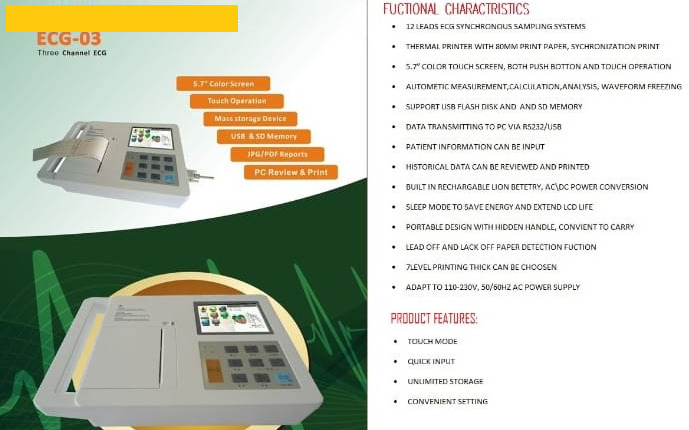
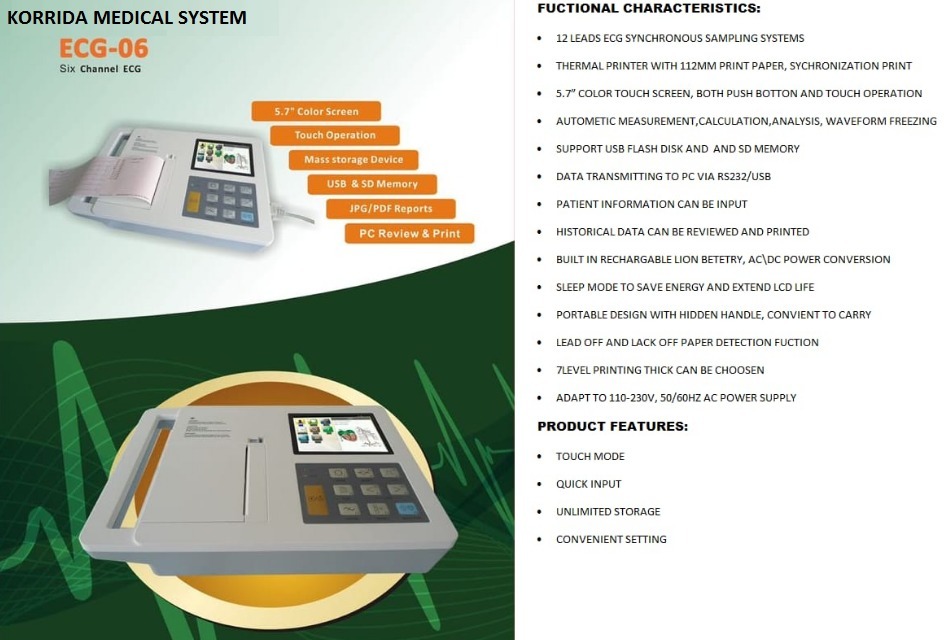
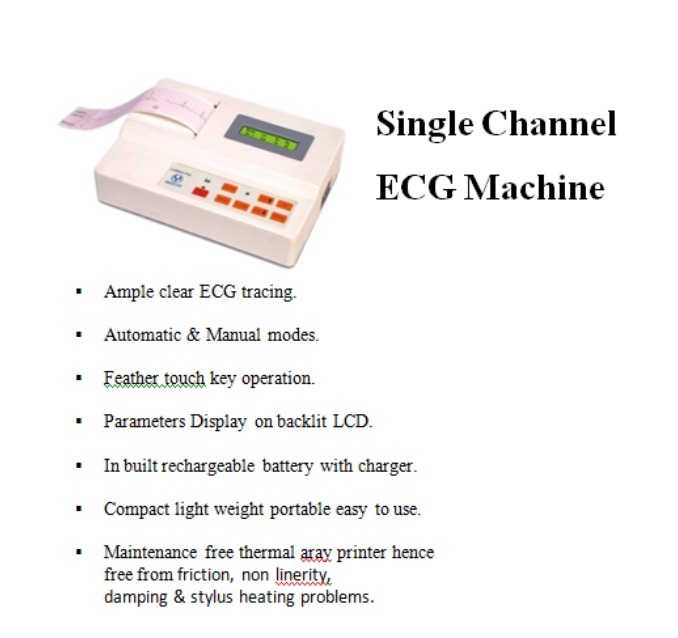
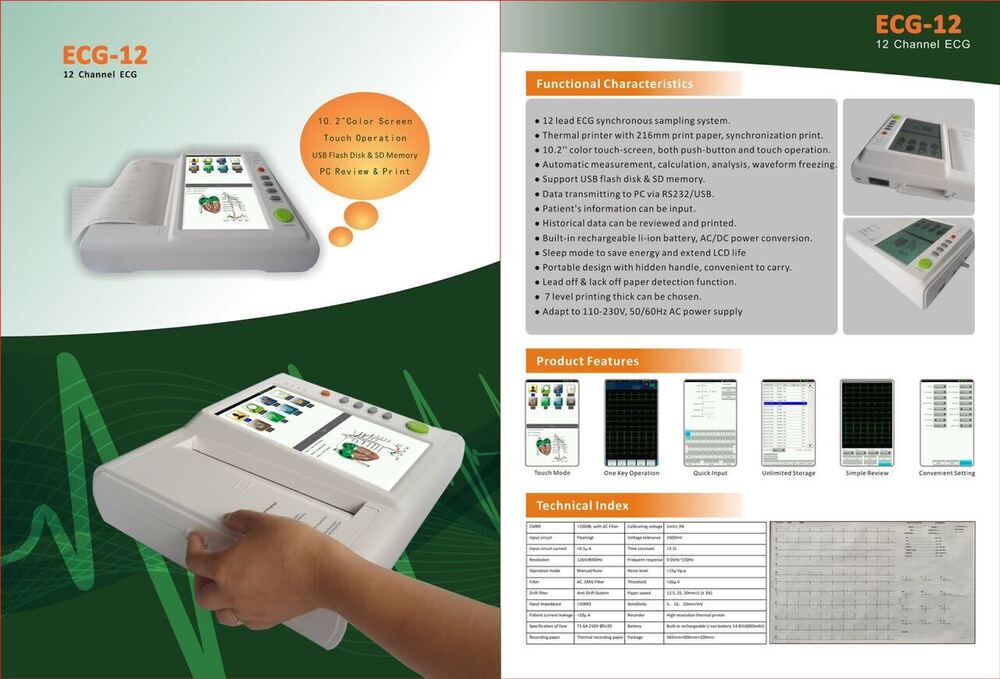
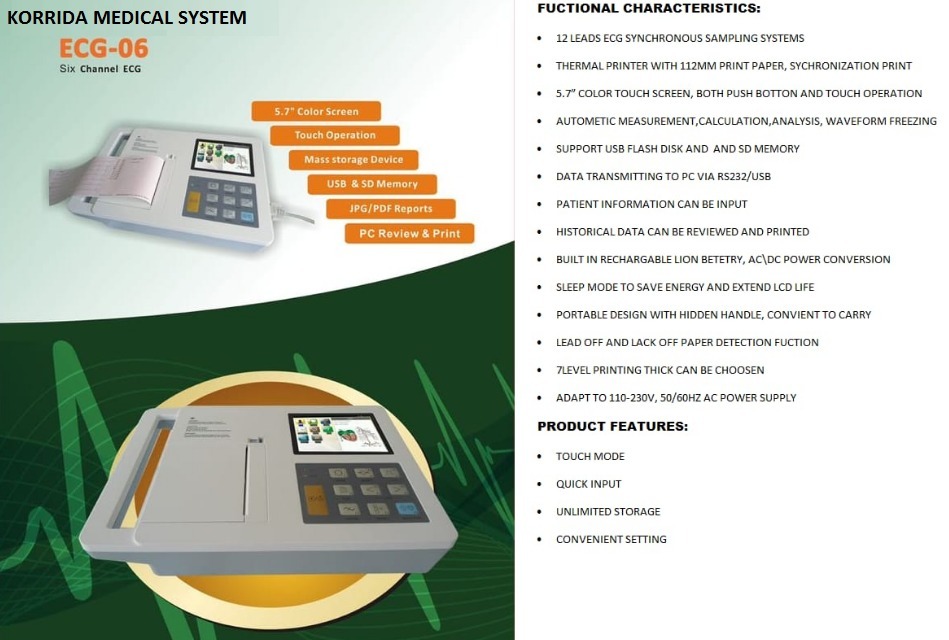
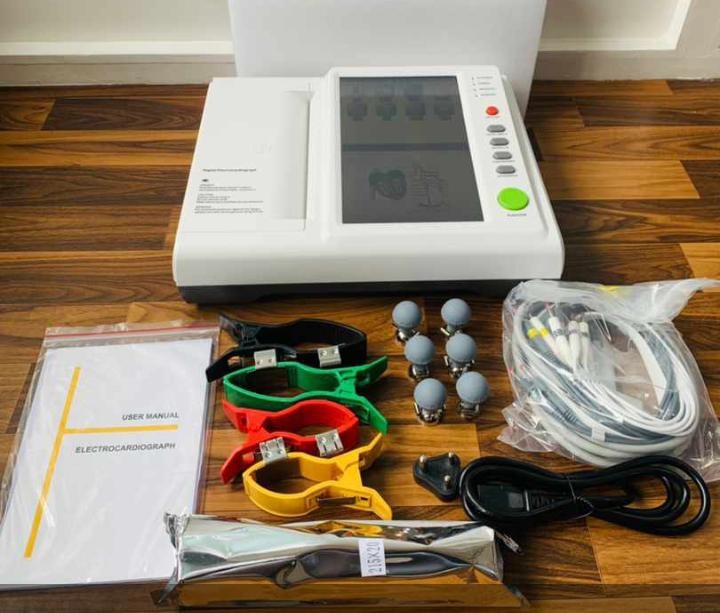

Price:
- 50
- 100
- 200
- 250
- 500
- 1000+
More Products in KORRIDA MEDICAL SYSTEM Category
ORTHO DRIL
Minimum Order Quantity : 1 Piece
Weight : 10 Kilograms (kg)
Use : HOSPITAL USE
Suitable For : HOSPITAL
Material : IRON
Dimension (L*W*H) : 35*35*35 Inch (in)
COMEN VENTILATOR
Minimum Order Quantity : 1 Piece
Weight : 30 Kilograms (kg)
Use : HOSPITAL USE
Suitable For : HOSPITAL
Material : IRON
Dimension (L*W*H) : 75*5575 Inch (in)
BISTOS HEADLIGHT
Minimum Order Quantity : 1 Piece
Weight : 1 Kilograms (kg)
Use : HOSPITAL USE
Suitable For : HOSPITAL
Material : PLASTIC
Dimension (L*W*H) : 12*12*12 Inch (in)
VAIN FINDER
Minimum Order Quantity : 1 Piece
Weight : 4 Kilograms (kg)
Use : HOSP[ITAL USE
Suitable For : HOSPITAL
Material : PLASTIC
Dimension (L*W*H) : 13*12*70 Inch (in)
 |
KORRIDA MEDICAL SYSTEMS
All Rights Reserved.(Terms of Use) Developed and Managed by Infocom Network Private Limited. |

 Send Inquiry
Send Inquiry Send Inquiry
Send Inquiry
